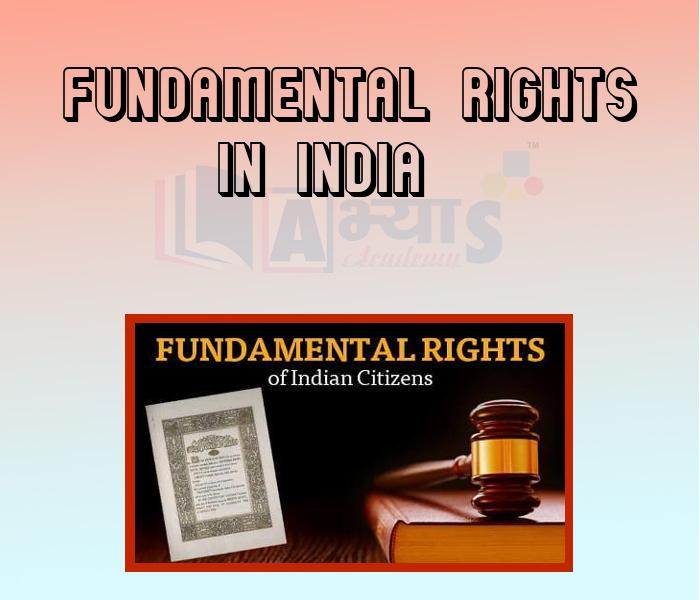Fundamental Rights in India









Fundamental Rights in India
Fundamental Rights: the section on fundamental rights has often been offered to as the conscience of the Indian Constitution. Colonial rule had created a certain suspicion of the state in the minds of the nationalists and they wanted to ensure that a set of written rights would guard against the misuse of states power in independent India. Fundamentals Rights therefore, protect citizens against the arbitrary and absolute exercise of power by the state. The constitution thus, guarantees the rights of individuals against the state as well as against other individuals. There are six Fundamental Rights in the Indian Constitution, which are: (i) Right to Equality; (ii) Right to Freedom; (iii) Right against Exploitation; (iv) Right to Freedom of Religion; (v) Cultural and Educational Rights; (vi) Right to Constitution Remedies. In addition to Fundamental Rights, the Constitution has a section called Directive Principles of State Policy. It ensures greater social and economic reforms and to serve as a guide to independent Indian state to institute laws and policies that help reduce the poverty of the masses.
"Fundamental Rights" and "Judicial Review: found in the Indian Constitution can also be found in ______________________ | |||
| Right Option : B | |||
| View Explanation | |||
What are the objectives for implementing the Fundamental Rights according to Dr. B.R Ambedkar ? | |||
| Right Option : A | |||
| View Explanation | |||
When all citizens of a country are equal before law, it implies ___________ | |||
| Right Option : C | |||
| View Explanation | |||
Students / Parents Reviews [10]
My experience was very good with Abhyas academy. I am studying here from 6th class and I am satisfied by its results in my life. I improved a lot here ahead of school syllabus.

Ayan Ghosh
8thIt has a great methodology. Students here can get analysis to their test quickly.We can learn easily through PPTs and the testing methods are good. We know that where we have to practice

Barkha Arora
10thMy experience with Abhyas is very good. I have learnt many things here like vedic maths and reasoning also. Teachers here first take our doubts and then there are assignments to verify our weak points.

Shivam Rana
7thA marvelous experience with Abhyas. I am glad to share that my ward has achieved more than enough at the Ambala ABHYAS centre. Years have passed on and more and more he has gained. May the centre flourish and develop day by day by the grace of God.

Archit Segal
7thBeing a parent, I saw my daughter improvement in her studies by seeing a good result in all day to day compititive exam TMO, NSO, IEO etc and as well as studies. I have got a fruitful result from my daughter.

Prisha Gupta
8thIt was a good experience with Abhyas Academy. I even faced problems in starting but slowly and steadily overcomed. Especially reasoning classes helped me a lot.

Cheshta
10thAbhyas is a complete education Institute. Here extreme care is taken by teacher with the help of regular exam. Extra classes also conducted by the institute, if the student is weak.

Om Umang
10thAbhyas Methodology is very good. It is based on according to student and each child manages accordingly to its properly. Methodology has improved the abilities of students to shine them in future.

Manish Kumar
10thIt was good as the experience because as we had come here we had been improved in a such envirnment created here.Extra is taught which is beneficial for future.

Eshan Arora
8thMy experience with Abhyas academy is very good. I did not think that my every subject coming here will be so strong. The main thing is that the online tests had made me learn here more things.
